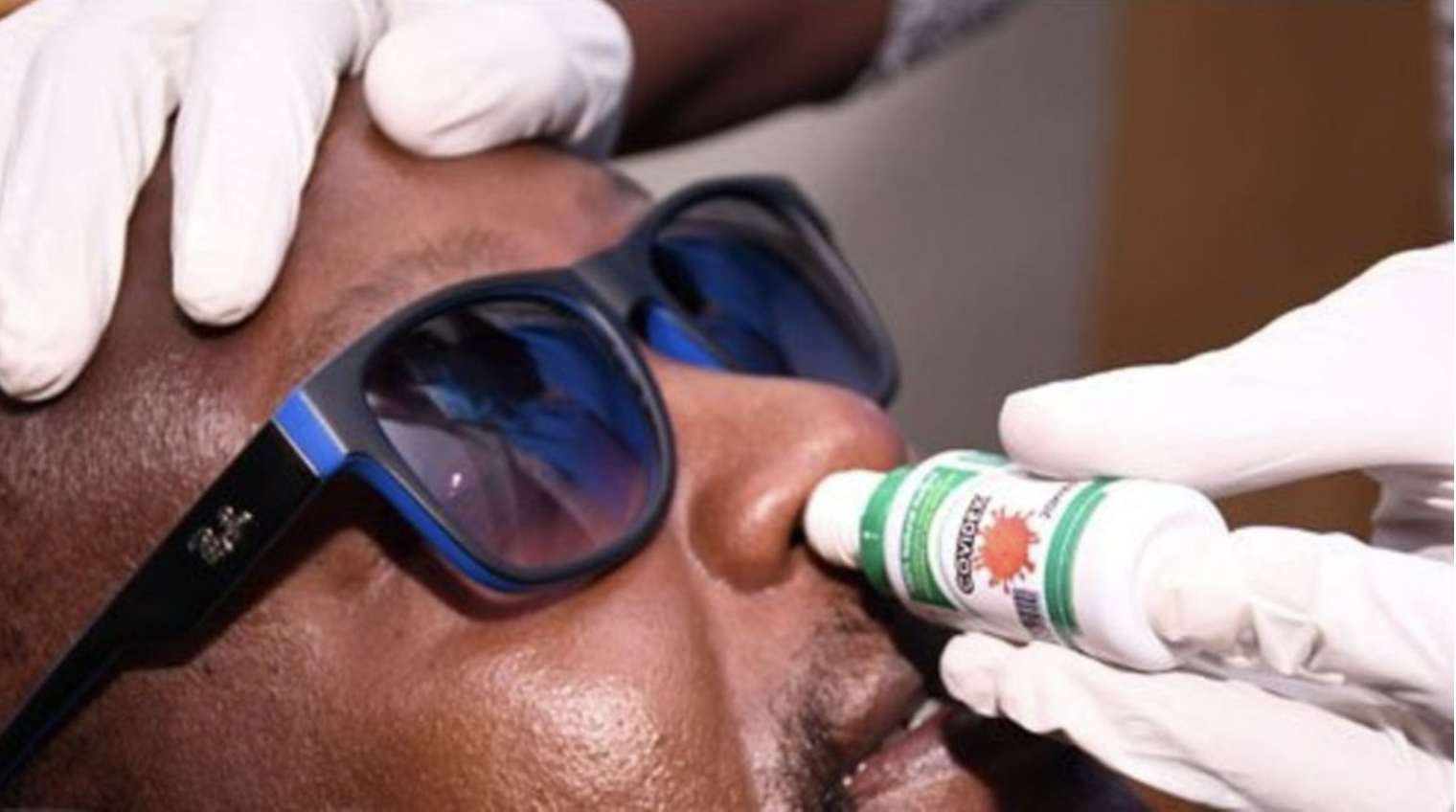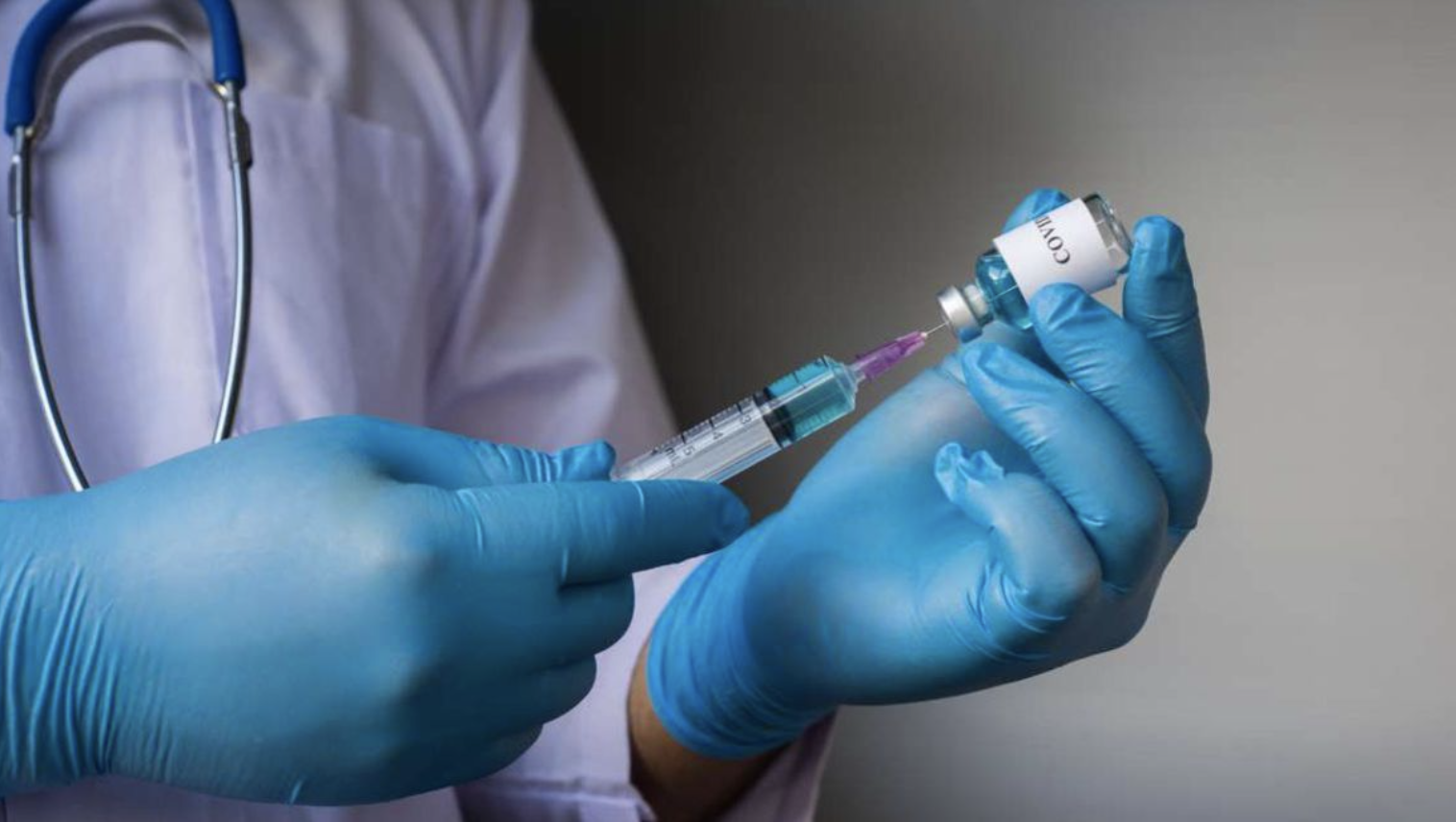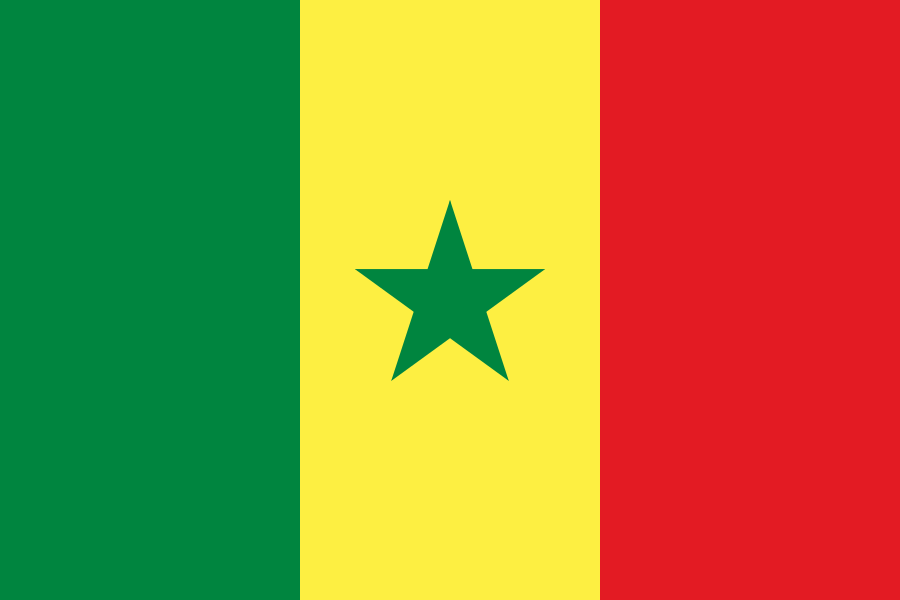Uganda has approved the use of Covidex, a local herbal medicine, as a supporting treatment for viral infections, including Covid-19.
Addressing journalists in Kampala on Tuesday, National Drug Authority (NDA) executive director David Nahamya said after various assessments and inspection of the factory manufacturing the herbal medicine, they have approved its use to support treatment of viral infections.
"After engagements, the innovators have removed unsubstantiated claims that the product treats and prevents Covid-19 and revised it to supportive treatment in management of viral infections. NDA has granted Covidex an approval based on initial assessment, published literature and safety studies conducted by the innovator," Mr Nahamya announced.
The product has been formulated from herbal plants that have been traditionally used to alleviate symptoms of several diseases.
However, Mr Nahamya stressed that the medicine does not cure Covid-19 but it can supplement the medicine being used by medics to treat coronavirus patients.
The drug authority said it will continue to monitor the safety of Covidex through its post-market surveillance activities.
"We call upon the public to immediately report any side effects from the use of this product to our toll free line 0800101999," Mr Nahamya added.
The drug, made by Mbarara University scientists led by Prof Patrick Ogwang, had generated debate over its efficacy in treating the dreaded Covid-19.
But to further support the efficacy of the drug for other uses, NDA has advised the manufacturer to conduct random controlled clinical trials which are the highest level of evidence to ascertain any claims of treatment.
NDA had on June 14 asked the manufacturer of the drug to cease sales, citing safety concerns because the medicine had not yet been approved.
However, Daily Monitor reports that the drug, which users claim to be “very effective” against Covid-19 symptoms such as flu, is being ferried to various parts of the country as demand soars.
The Pharmaceutical Society of Uganda said there is still no proven cure for Covid-19 and all medicines (herbal and pharmaceutical) should be given equal chance.
Source - The East African
Rwanda has signed a Rwf3.6 billion ($3.6 million) partnership with the European Union to help upgrade the country’s laboratory capacity to help it attract investors to manufacture Covid-19 vaccines.
The funds will be used to strengthen the Foods and Drugs Authority's quality control for medical products, to enable the regulator acquire necessary certification from the World Health Organisation (WHO).
“What we signed is a step to revamp and also strengthen the Rwanda Foods and Drugs Authority. The money we will receive from the EU will support the acquisition of laboratory equipment to make it a modern facility that will enable Rwanda to get a WHO certification,” Clare Akamanzi, Chief Executive Officer, Rwanda Development Board told CNBC Africa on Thursday.
“The WHO certification we need for this will also build the confidence of investors who want to produce vaccines. They (investors) will be able to trust the regulatory capacity we want to strengthen with this funding.”
Production
Rwanda plans to start manufacturing coronavirus vaccines using mRNA technology after it secured international backing to build local capacity in the coming months.
Last week, Rwandan President Paul Kagame told the Qatar Economic Forum that the negotiations with partners to manufacture vaccines locally have advanced and the process will start “in a few months.”
He was speaking shortly after Rwanda, Senegal and South Africa were announced as potential candidates for hosting Africa’s regional Covid-19 vaccines production hubs.
“For Rwanda, in particular, we have partnered with some industries that are specialising in mRNA technology. So, we have already discussed that technology with people who will help with financing and I think in a few months we should hear a different story,” President Kagame said.
Africa, President Kagame added, has to be an equal partner with the rest of the world and manufacture vaccines as the continent continues to grapple with a blockage on supplies.
And while currently, South Africa, Egypt, Morocco, Tunisia, and Senegal have the capacity to produce Covid-19 vaccines, restrictions on intellectual property (IP) rights for Covid-19 vaccines has made it impossible.
Vaccine deliveries to Africa through the Covax facility ground to a near halt in May as the Serum Institute of India diverted doses for domestic use. Between February and May, the continent received just about a quarter – 18.2 million – of the 66 million expected doses through Covax, according to WHO.
"It’s not a question of if this was a moral failure, it was deliberate.
"Those with the resources pushed their way to the front of the queue and took control of their production assets," Strive Masiyiwa, African Union Special Envoy and coordinator of the Africa Vaccine Acquisition Task Team (AVATT) initiative, recently told a virtual summit by US-based Milken Institute on vaccine equality and equitable distribution.
Masiyiwa expressed frustration that despite willingness by the Africa Union to pay upfront for the vaccines, he was told that manufacturers said “all capacity for 2021 has been sold.”
Support
In May 2021, the European Union announced at the G20 Global Health Summit that an initiative backed by $1.1 billion from its budget will be set to support manufacturing and access to vaccines and health technologies in Africa.
The statement also revealed that the EU and the European Investment Bank (EIB) are in discussions to partner with the government of Rwanda to facilitate and promote investment by pharmaceutical and biotech companies in the country, including exploring opportunities for co-financing potential investments.
“This is an important step in supporting local manufacturing of health products in Africa. Team Europe will continue to support the country and Africa in strengthening the regulatory framework and attracting investment in the pharmaceutical sector,” said Jutta Urpilainem, the European Commissioner for International Partnership.
Third wave
While Covid-19 vaccination is currently ongoing across Africa, progress remains uneven and the pace remains too slow to significantly lower the risk of death or for the continent to achieve herd immunity as only 0.6 percent of Africa’s adult population is fully vaccinated according to estimates by the International Monetary Fund (IMF).
Now, concern is rising that the continent faces a real risk of catastrophe as it is now facing the World’s fastest growth rate for new Covid cases, with analysts at the IMF saying based on the current trends, the third wave will likely surpass previous peaks within the next week.
“It is a human tragedy and an economic calamity. Countries across the continent –from South Africa to Uganda and Rwanda – are forced to reintroduce restrictions, further denting a precarious recovery.
“In the face of new variants, Africa is ill protected, due to severe vaccine shortages. So far, only 0.6 percent of Africa’s adult population have been fully vaccinated…” said Ms Kristalina Georgieva, IMF Managing Director. She spoke at the African Development Bank Annual Meeting on June 23.
Source - The East African
DAKAR (Reuters) - Senegal is set to be partly powered by liquefied natural gas for the first time with the arrival at the capital, Dakar, on Wednesday of a floating gas facility from Singapore, the West African nation’s state power company, Senelec, said.
The floating storage regasification unit (FSRU) is the result of a joint venture between Japanese shipping company Mitsui OSK Lines Ltd (MOL) and Turkey’s Karpowership, which supplies power from its fleet of ships mainly to eight African nations.
Senegal could begin producing COVID-19 vaccines next year under an agreement with Belgian biotech group Univercells aimed at boosting Africa's drug-manufacturing ambitions, a source involved in funding the project told Reuters.
As wealthy countries begin to reopen after securing vaccine supplies early, African nations are still struggling to acquire shots. On a continent of 1.3 billion, only about 7 million have been fully vaccinated.
The collaboration highlights the opportunities created by a global push to channel money and technology towards production on a continent that makes only 1% of the vaccines it requires.
Univercells announced the signing of a letter of intent for collaboration with the Institut Pasteur in Senegal's capital Dakar in April. The source shared details of the proposal, which were not made public.
Under the agreement, the Institut Pasteur would use vaccine production technology developed by Univercells to supply COVID-19 vaccine shots to countries across West Africa.
The institute would initially begin packaging and distributing vaccines produced by Univercells in Belgium early next year, the source involved in securing financing for the collaboration told Reuters.
Univercells would transfer its full production line to Senegal in the second half of 2022, the source said, adding that the company would train local staff so they could eventually run the operation.
Univercells chief investment officer Kate Antrobus, when asked about the timeframe for the project, confirmed that it could send vaccine doses to Senegal early next year.
She declined to comment on the exact date for a full vaccine production line in Senegal but of the timelines referenced she said: "I do not think they are unreasonable."
Timing depends on Univercells securing regulatory approval for a vaccine production site in Belgium. Antrobus said that was expected "any day now".
Institut Pasteur director Amadou Sall declined to comment on the timeline or size of the project but said the facility was working with donors to secure financial backing.
"There is a lot of political will, I am optimistic. But it is not about momentum, it is about creating a real opportunity," he said.
It is not clear yet what vaccine will be supplied to Senegal, but Antrobus said the site in Belgium would be able to manufacture a class of so-called viral vector COVID-19 vaccine such as those developed by Johnson & Johnson (JNJ.N), AstraZeneca (AZN.L), Russia's Sputnik V and China's Cansino.
"If COVID amazingly subsides over the next year....that same capacity could be used for other viruses," Antrobus said.
Univercells also has its own COVID-19 vaccine candidate, being developed with Germany's Leukocare and Italian firm ReiThera, which has completed Phase II trials. It is seeking financing to carry out Phase III, which the Italian government said it is ready to fund.
300 MILLION DOSES NEXT YEAR
Senegal's Institut Pasteur is the only facility in Africa currently producing a vaccine - a yellow fever shot - that is pre-qualified by the World Health Organization, which requires manufacturers to meet strict international standards.
Pre-qualification allows facilities to supply to major buyers like the U.N. children's agency UNICEF.
Donors including the United States and the European Union are lining up to help fund an expansion at the institute to incorporate COVID-19 vaccines, the source involved in fundraising said.
A call by the institute for an initial $10 million in funding has been oversubscribed, the source said.
A U.K. government-funded cost analysis conducted for the Institut Pasteur, seen by the same source, said that the project would cost about $200 million, based on its aim to produce 300 million doses of COVID-19 vaccine by the end of next year.
Financing will depend on the institute having committed buyers. According to the cost analysis, the project would be commercially viable if it produced vaccines other than COVID-19, so it can keep functioning after the pandemic.
STRATEGIC PLAN
Africa's struggles to secure vaccine supplies exposed its vulnerability to health crises and pushed governments to find ways to boost medicine and vaccine production.
Those efforts are now gaining traction with wealthy countries.
The European Union said last month that it will invest at least 1 billion euros to build manufacturing hubs in Africa, with Senegal, South Africa, Rwanda, Morocco and Egypt among the leading candidates.
South Africa's Biovac Institute told Reuters it has been in touch with the French and German governments and pharmaceutical companies with an aim to produce 30 million COVID-19 vaccines annually.
South African company, Aspen Pharmacare, is already producing shots of the J&J vaccine locally.
The EU plan, in coordination with the African Union, aims to bolster drugs regulators in Africa, train Africans in the skills needed to expand the pharmaceuticals industry, and support businesses producing materials and components.
The plan will look at countries that "can move quickly, and which have the political capital to drag that forward," John Nkengasong, director of Africa Centres for Disease Control and Prevention, said.
Africa's $1.3 billion vaccine market could rise to as high as $5.4 billion by 2030 because of population growth and the availability of new vaccines, U.S.-based consultancy McKinsey and Company said in an April report.
There is still a long way to go, experts say.
Beyond the need for financing, governments and regulators need to make it easier for technology to be transferred to Africa, and to reduce risk through public-private partnerships.
"These are really mid to long-term goals, so you're looking at one to two years minimum," said Chema Triki of the Tony Blair Institute for Global Change. "It's not just about COVID. Africa needs to be ready for the next pandemic."
Our Standards: The Thomson Reuters Trust Principles.



